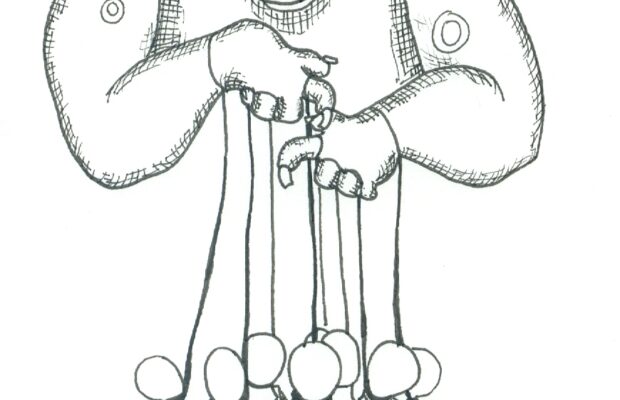The faults of tipping culture

These days no matter where you go, you’re asked to tip the workers. It used to just be for servers at restaurants, but now it’s for baristas at Starbucks, too. With the recent financial tensions experienced by average Americans, people are asking how much we should really be tipping, and why we became used to the practice in the first place.
Back in the mid 1800s, rich Americans were traveling to Europe, where tipping culture was huge. When they came back, they tipped workers to get better service. After restaurants started looking to cut costs, they caught wind of tipping, and used it as an excuse to pay their employees less. Soon after that, gratuity became a fee whenever you dine out.
Tipping is normal now, but it didn’t always work that way. There used to be resistance to tipping in the U.S. because people thought they were paying for the same thing twice. Nowadays, tips aren’t just extra money for servers. In 1966, congress set the sub-minimum wage for tipped workers at only $2.13 an hour, leaving servers dependent on their customers. However, most people tip based on the social norm of 20%, and not based on service quality. Ideally, employees would rely on their employer for a living wage, not the diners. Even though it is rude for you to not tip a server, the system that made it that way should be changed.
At Starbucks, you’re asked to tip. The choice is yours, yet so many people act like it is not. A TikTok trend in December of 2022 had users making fun of baristas all because the point-of-sale terminal automatically asked if they wanted to tip. It was easy for people to become hyperbolic, claiming that baristas were entitled, especially because Starbucks drinks are already expensive. Eventually, in the eyes of many people, baristas aren’t service employees, they are ungrateful, selfish, and undeserving of financial help. Furthermore, many people can not afford to tip, likely because they themselves do not have a livable wage.
Capitalism is the reason for why tipping still exists. Instead of the current system of tipping, restaurants could raise the prices of their food and pay their servers a normal (and better yet, livable) hourly wage. There are even some restaurants that don’t accept tips, and choose to take responsibility for their servers’ income.
The general population has become delusional. We have lost sight of the reason that tipping sucks. The baristas and servers aren’t in charge of designing the receipt that asks for a tip, nor are they responsible for the POS terminal suggesting that you leave extra money. It’s the delegators at corporations that cut corners, even when it comes at the cost of their workers and customer’s happiness. In the case of tipping culture, it is our job as consumers to hate tipping, not the people who are just doing their job.



